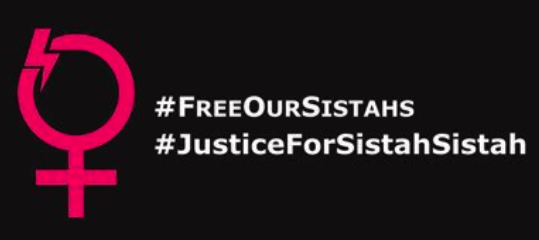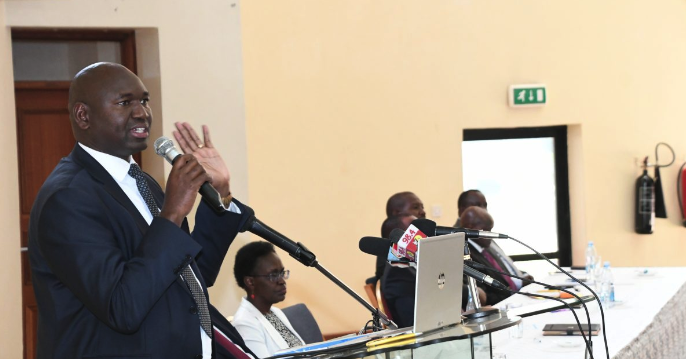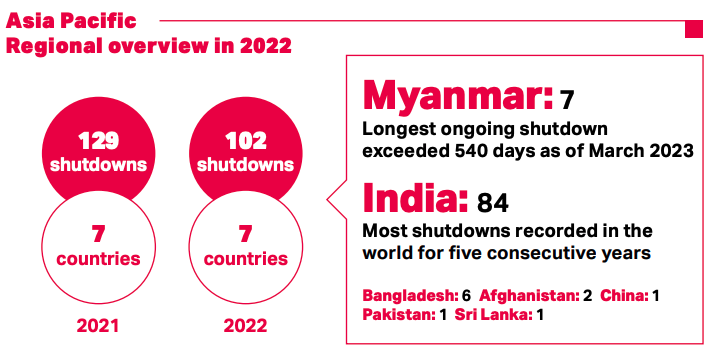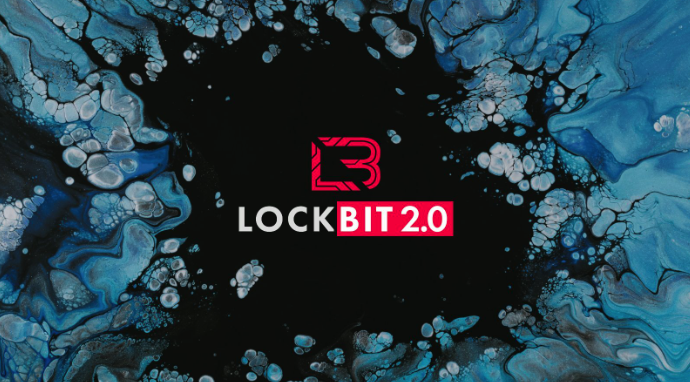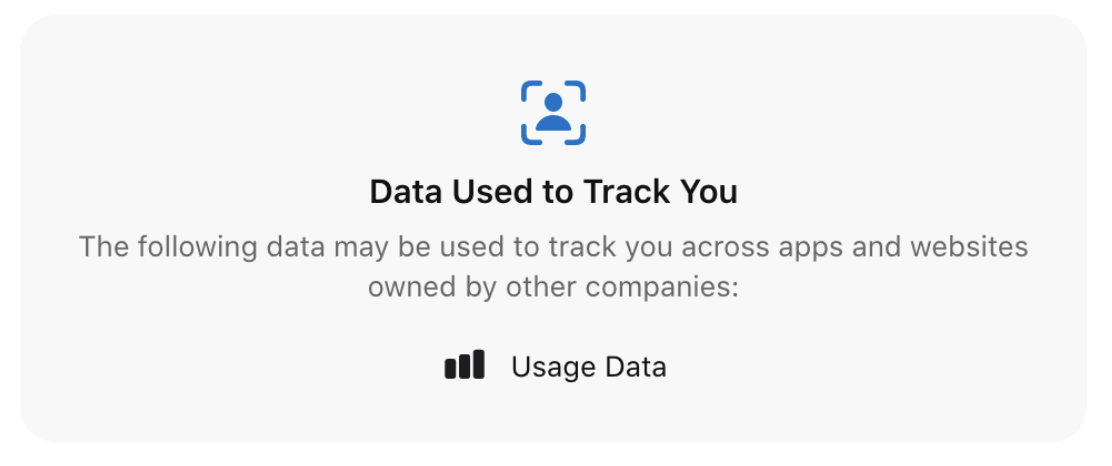March 2023 | Digital Rights Regional Briefs
Danae Tapia, Global Community Manager & Resident Hechicera
The change of season is here and with that a new release of our regional briefs!
Our community leads are bringing updated and critical information about digital justice issues around the globe. Focusing in the Latin America, MENA, Africa and Asia regions, our reports cover Current Opportunities for Digital Rights Defenders, Emerging Topics on Digital Justice, Community News, Regional News And Updates.
Astha, our Asia community lead, is bringing an interesting viewpoint on internet shutdowns and their economic impact both for small and medium businesses as well for big investments. Mardiya, from Africa, is sharing the exciting case of the Zenzeleni Mankosi Cooperative, a community network provider that caters to rural South African communities. In Latin America, López Obrador, the Mexican president, claims that secret surveillance perpetrated by the army is “research and not espionage”, and in the MENA region there is a transversal situation of currency devaluation and a growing concern about digital financial insecurity.
If you know about individuals or groups working on issues that should be reported in our briefs please let us know. Your contribution can help us move forward with our goals of promoting fresh and critical viewpoints on digital justice issues :)
Danae
Global Community Manager
Asia Regional Brief
Africa Regional Brief
Latin America Regional Brief
MENA Regional Brief
Author: Mardiya Siba Yahaya
Mardiya Siba Yahaya is our Africa Community Lead. She is a feminist digital sociologist, researcher and community movement builder whose work extensively investigates the implications of technology surveillance and datafied societies on minoritized genders and communities in the global South. She has a Masters in Sociology from the University of the Witwatersrand, and was awarded the Mandela Rhodes Scholarship in 2021. Mardiya recently participated in the fall 2022 research sprint hosted by the Berkman Klein Center for Internet and Society on “Digital IDs in Times of Crisis”.
Africa Regional Brief
Current Opportunities for Digital Rights Defenders
Pollicy is hiring an experienced and visionary feminist Executive Director to lead the team and drive the organization’s growth in Africa and across the rest of the world.
Rest of the World is calling for reporters native to regions outside the West who want to cover how tech impacts labor and workers around the world for their Labor Tech Reporting Fellowship. Deadline: April 7.
Apply for the Responsible Technology Youth: The Responsible Technology Youth Power Fund invites youth and intergenerationally led organizations to submit proposals for initiatives that are shaping the future of the responsible technology movement. Deadline: April 1.
Emerging Topics on Digital Justice in Africa
Language Inclusivity gaps in Technologies and Community Datasets
Access to the Internet and digital technologies remain a significant barrier to fully participating within digital societies and the increased digitization of the state. While access has often been addressed from perspectives of affordability of devices and internet bundles, a group of researchers and technologies have expanded this conversation towards language.
Various researchers have explored what it means for people whose lives become intertwined with a digitized society that inherently excludes them. From its infrastructure to its content layer, digital technologies have been designed to center the English language. Nine additional languages were added (Chinese, Spanish, Arabic, Portuguese, Japanese, Russian, German, French and Malaysian). Yet over 7000 languages are spoken worldwide.
Cecilia Muandu explains how language exclusivity impacts people's participation in the ‘information society’ and how it puts them at risk of harm without understanding the implications of said harm. For instance, while many African countries may have more than ten languages spoken within their national boundaries, government websites and services are usually only in English. Translation technologies have also been found to be limiting especially where languages or expressions have less literal meanings.
There has been some progress to address this issue by Microsoft which launched thirteen new African languages for Microsoft Translator. Since 2019, Mozilla Common Voice has also been working to crowdsource large voice datasets for Kinyarwanda, Kiswahili and Luganda with local communities. Their goal is to increase the creation and use of open voice data and technologies through community driven approaches and activities.
Community Networks in South Africa, Emerging Possibilities for Cameroon
Image’s source: APC News.
Zenzeleni Mankosi Cooperative is a community network provider that caters to rural South African communities. The cooperative owns, governs, maintains, and provides an equally fast and quality internet connection within their communities. Zenzeleni was built as a community effort to bridge connectivity gaps at the intersection of class and location. A significant aspect of lack of connectivity within rural areas has been telecommunication companies' willingness to extend fiber cables to certain locations considered a ‘remote’, while providing affordable internet.
Similar alternative models to internet connectivity are recently being explored within Cameroon, with lessons from Zenzeleni on building community networks. However, key stakeholders within Cameroon are coming together to advocate for favorable regulatory and operational public policies that allow local communities to connect themselves, thus ultimately breaking the reliance on traditional internet service providers.
Community News in Africa
The Arrest of Feminist in Zambia and Feminist Activism Online:
Members of the Sistah Sistah Foundation, a Zambian Feminist organization, were arrested after their march against gender based violence to commemorate 2023’s International Women’s day. Four members of Sistah Sistah were accused of promoting ‘LGBTQ’ activities and sharing false information about the protest. The pictures from the march which was shared on Twitter was received with violent and hateful comments that claimed organizers are distracting ‘women’s’ issues with a queer agenda. Feminists online rallied to condemn the arrests and called for their release using the hashtag #JusticeforSistahSistah while strategic litigation groups in Zambia worked on their bail.
Gendered Disinformation in Kenya and Uganda:
During the few months in 2023, there has been a rise in politically motivated gendered disinformation against sexual and gendered minorities online. As the African digital rights community works to address violence and harm online, political leaders have weaponized spaces such as Facebook, Tiktok and Twitter to spread hate against gender and sexual minorities. In Uganda, the government also threatened to revoke the registration licenses of organizations accused of supporting sexual minorities. In Kenya, in response to the right to association law being recently granted to queer organizations, political leaders are calling for it to be repealed. These leaders are also proposing an anti-queer bill. Social media has been instrumental in spreading disinformation on ways to ‘spot’ activists and targeted groups to be reported to state authorities. HerInternet, an activist group in Uganda, has been working on projects that include raising awareness on the effect and strategies for countering disinformation.
Regional News in Africa
Power Outages are Killing South Africa’s Gig Economy:
Drivers of ride hailing apps and delivery agents in Johannesburg shared with Rest of the World that since the power outages began in 2021 and intensified in 2022, their daily earnings have dropped. The city experiences up to six hours of power cuts per day. Mobile signals are low during these cuts. The platform workers shared that as a result, passengers often have to cancel rides, are unable to book trips nor order food when these cuts happen. This in turn lowers their earnings. Workers experience unpaid long wait times and spend longer hours reaching passengers. In a country with high crime rates, workers also face high risks of violence while working at night during power outages. On Mar 20, 2023, citizens in South Africa are set for national #shutdowns, to protest rising cost of living amid power outages.
Checking voter identification in Nigeria during the elections. Image’s source: Yemi Festus via Wikimedia Commons.
Election Disinformation in Nigeria - Election, Religious and Ethnic Hate Speech Ahead of the Election:
Ahead of the Nigerian presidential election, held on 25 February 2023, Meta released a brief on how they are preparing for the Nigerian election. Despite claims of preparation from Big Tech, throughout the recent elections in Nigeria, there was a rise in political disinformation with religious and ethnic connotations all over WhatsApp and Twitter. A report showed that ‘influencers’ were being paid to discredit other opposition parties, and claiming they have religious backing and affiliations. On Twitter, ethnic hate speech to discredit opponents’ viability within certain states in Nigeria were also prevalent. During the election, viral videos implying ballot-stuffing went viral. However, BBC highlighted that the videos were actually from 2019 and 2021. False reports on an imminent shutdown of all telecom networks and online banking leading up to the election was also spread on social media.
Image’s source: Kenya News.
Kenya Launches the Unique Personal Identifier (UPI):
The Kenyan government launched the UPI to register the country’s births and deaths. The government announced that the UPI will also be used as an identification card, in addition to national health insurance and tax registrations. The new initiative by the government is part of the continuous effort of digitization of governance and the datafication of the state as a solution to efficiency and corruption. However, researchers and digital rights defenders are concerned that it may increase exclusion and surveillance.
Author: Astha Rajvanshi
Astha Rajvanshi is an independent journalist based in Mumbai, where she writes on gender, marginalized communities, and human rights across India and South Asia. Recently, she was awarded the Matthew Power Literary Reporting Award by New York University. As part of her reporting in India, she is currently examining tech surveillance and internet shutdowns. Previously, she was a Fellow for the Institute of Current World Affairs in Washington DC. She has also worked for the New York Times Magazine and Reuters in New York. She was born in New Delhi and raised in Sydney as a proud daughter of immigrants.
Asia Regional Brief
Current Opportunities for Digital Rights Defenders in Asia
Policy Analyst (East Asia) at AccessNow: the Policy Analyst will be deeply involved in aspects of the organization that pertain to Access Now’s policy initiatives in the East Asian Region (including Mainland China, Hong Kong, Taiwan, as well as South Korea, Japan, and Mongolia). Apply here.
Administration and Finance Officer at Engage Media: the Administration and Finance Officer will provide finance, logistical, and administration support at the organizational and project team levels. Apply here.
Communications Associate at the Asia Center: this role is responsible for supporting Asia Centre’s outreach to its different target audiences (both internal and external). This position is only open to Thai nationals. Apply here.
Research Assistant at the Asia Center: Key duties include contributing to research conceptualisation and design, drafting research proposals, compiling data into tables and infographics, analyzing information, preparing presentations, and more. Apply here.
Call for Applications: Asia and the Pacific Regional Feminist Legal Theory and Practice Training. The Asia Pacific Forum on Women, Law and Development (APWLD) invites applications for the Asia and the Pacific Regional Feminist Legal Theory and Practice (FLTP) Training. Apply here.
Program Associate - Southeast Asia at the International Republican Institute (Washington DC): the Program Associate is the entry level position for program work at IRI, and provides administrative and programmatic support for current and developing programs in Southeast Asia. Apply here.
Emerging Topics on Digital Justice in Asia
As Internet shutdowns continue to rise across Asia, what impact does this have on workers rights?
The latest Access Now report with the #KeepItOn coalition painted a stark picture of how governments around the world continue to impose internet shutdowns at an alarming rate. In 2022, there were at least 187 shutdowns across 35 countries. India saw the highest total number of shutdowns in the world, but the number was the highest ever even when India was excluded.
While these findings may no longer feel new, they are occurring at the same time as the rise of a burgeoning digital labor platform economy. Particularly across Asia, the platform economy is being touted as the region’s digital growth catalyst. More than $56 billion is being invested in digital labor platforms, which is nearly half the global total, according to PeiChin Tay at the Institute for Global Change.
New businesses bring new opportunities for workers and users, in addition to new challenges for policymakers. This is why we need to contend with the economic cost at stake when the internet shuts off, as well as who bears the burden the most: the workers. According to the UN, between 2019 and 2021, internet shutdowns in 46 countries resulted in losses of over $20.5 billion. Another study by the GNI found that even low-connectivity countries can lose an average of $3 million per day.
India, China, South Korea, and Singapore cases
Internet shutdowns most affect local traders and small and medium-sized businesses that rely on online access for payments, consumer access, delivery, innovation, and communication. For example, the World Bank estimated that the shutdowns cost Myanmar’s economy roughly $2.8 billion. Previously, tech-based businesses have closed down temporarily and international transactions have stopped. For a country that has started attracting foreign investors, these interruptions could destroy investor confidence.
India, notorious for having the highest number of internet shutdowns globally, is also at risk. India is embracing rapid technological innovation on a previously unseen scale that many developing nations can follow for spurring economic growth. This New York Times article documents how the QR code scan-and-pay system is a strong pillar of what the prime minister, Narendra Modi, championed as “digital public infrastructure”.
Simultaneously, the Access Now report cites examples of food delivery workers and small business owners who were affected by frequent internet disruptions. One food delivery worker in the northeast state of Meghalaya told the local newspaper: “I saved myself enough money to buy a smartphone and then wanted to use it to my advantage. Therefore I got engaged with [a food ordering app] and started delivering. The money I earn is on a daily basis. It depends on the number of deliveries I make in a day, but with mobile internet not working, I have nothing to do and have not made a penny for the last five days.” Similarly, a small business owner said, “Our primary mode of transaction is Google Pay. Customers are not able to pay us neither are we able to pay for the stuff we buy for the shop. It is a problem.”
What is worse is that in most countries, platform workers are treated as self-employed and get little or no access to traditional staff benefits. China, for example, considers such workers as self-employed but with some assurance of additional benefits and protections. South Korea, meanwhile, has restricted platform companies including Uber and Tada from offering certain services. Singapore recently joined the chorus of regulatory interventions with a set of recommendations intended to better support and protect ride-hailing and delivery workers. The government accepted a set of proposals from an advisory committee that would enhance protections for pension contributions, injury compensation, and workplace representation.
This welcome move balances gig workers' desire for flexibility with their need for labor protections. Indeed, the advisory committee took a clear position against treating platform workers as employees, citing the preferences of the city-state's workers.
Interestingly, India has delinked worker protections from worker status. They introduced a social security code in 2020 giving explicit recognition to gig and platform workers, offering protection for their wages, occupational safety, health and working conditions, social security and workplace representation. But these recognitions do nothing when the primary infrastructure to support the work – the internet – is shut off.
The good news is that the efforts to document and circumvent shutdowns are increasing at the same rate as the internet shutdowns themselves. Google, for example, took steps to boost its connectivity in Iran after protesters were faced with widespread shutdowns, followed by the relaxing of sanctions by the US to allow more online communication to flow into Iran. Moreover, a United Nations report noted that there’s a push to develop international frameworks to better document internet shutdowns and provide legal recourse for human rights infringements that occur as a result. Hopefully, these extend to the rights of workers and will give private companies more legal support to resist shutdown and manipulation requests to best support their employees.
Community News in Asia
The FOSS Asia Summit will happen in-person in Singapore from April 13 to April 15. There are over 130 global speakers covering the latest trends in #DevOps #Cloud #Robotics #AI #Database #Blockchain #OS #Hardware #Security. Find out more about the program here. Register to attend.
The Asia Centre’s report "Thailand Computer Crime Act: Restricting Digital Rights, Silencing Online Critics" reviews the provisions of the 2007 Computer Crime Act (CCA) and its 2017 amendment. Read the full report in English or Thai.
Asia Centre's 8th International Conference "Democracy and Election in Asia" will take place on 23-25 August 2023. Register here.
Regional News & Updates in Asia
Image’s source: GSMA’s Mobile Gender Gap Report.
Image’s source: Anwar Sohel.
According to the GSMA’s Mobile Gender Gap Report, mobile phones are how low and middle-income countries access the internet, accounting for 85% of broadband connections in 2021. 1.7 billion women do not own a mobile and are 14% less likely to. The largest digital access gap is in Sub-Saharan Africa & South Asia. Read the report here.
Strong legislative, policy and institutional frameworks rooted in gender-based data are critical not only to empower women and girls on digital platforms, but to also ensure those platforms have an intersectional lens that appropriately represent the full range of identities, speakers told the Commission on the Status of Women as it continued its sixty-seventh session. More information here.
The proposed Data Protection Act (DPA) of Bangladesh has raised some serious human rights and business-related concerns at home and abroad. The draft law poorly defines the classification of data and does not follow the international standards to define privacy. It also does not mandate that privacy-related data fields be removed from telecom voice and data call records, broadband internet packets, intercepting sources, financial sources, and smartphone app crowdsourcing data. Read more here.
Pakistan’s first digital census aims for inclusion. Rights activists say the new process should be made as accessible as possible to include previously excluded or undercounted groups such as transgender people. Read more here.
Hong Kong plummets in the rights index as Jimmy Lai’s lawyers testify at the United Nations. Lai is a billionaire Hong Kong media tycoon who has been vocally critical of the Chinese government. A London lawyer tells U.N. human rights experts that anything can be deemed a threat to national security. Read more here.
Access Now found that India imposed the highest number of internet shutdowns globally in 2022. Of 187 internet shutdowns recorded worldwide, 84 took place in India. Read coverage on this in CNN, the Washington Post, and Reuters.
Hong Kong: Tiananmen vigil organizers sentenced for not turning over data. On March 11, the Hong Kong Magistrate Court sentenced three former members of the defunct Hong Kong Alliance in Support of Patriotic Democratic Movements of China (Hong Kong Alliance) to four and a half months in prison for refusing to turn over sensitive data to national security police. Read more here.
Resources
Netblock’s data-driven online Cost of Shutdown Tool allows anyone to easily estimate the economic costs of internet disruptions of an affected country or region, providing a quick view of their destructive impact on economic growth.
This research by the Tony Blair Institute for Global Change explores the global platform economy from the perspective of workers, with fresh insights from interviews with workers in four cities (Singapore, Jakarta, London and Nairobi). It highlights how governments can harness the best of what platforms can deliver and support the people using them.
Author: Úrsula Schüler
Úrsula Schüler was born and raised in Chile, South America. She studied journalism in her home country and a Digital media marketing postgraduate program in Canada. She has more than seven years of experience working in newspapers and television channel websites, for whom reported two presidential and legislative elections in Chile. She has also done internal communication for universities, companies, and organizations. Spanish is her first language and years ago she was a student representative in high school and her university.
LATAM Regional Brief
Current Opportunities for Digital Rights Defenders in LATAM
The Organized Crime and Corruption Reporting Project (OCCRP) is seeking a program assistant for the Global Anti-Corruption Consortium. Deadline: April 10, 2023
Tech Reporting Fellowship at Rest of World Labor media is looking for journalists from Latin America - Colombia, Brazil, or Chile. Deadline: April 7, 2023.
Spyware Accountability Initiative funding from Ford Foundation’s open call closes on April 16, 2023.
Access Now is looking for a Director of Policy and International Programs. More details here.
RightsCon will be held on June 5 to 8, 2023 in Costa Rica. Register for a free online ticket here or request a free or discounted in-person ticket here.
Emerging Topics on Digital Justice in LATAM
Mexico’s Secret Military Center Used Pegasus to Spy on Human Rights Defenders and Journalists
A new investigation in Mexico revealed that the Mexican Army spied on human rights defender Raymundo Ramos and the journalists investigating a case that involved soldiers gunning down innocent people in Nuevo Laredo, a city which borders the USA. The Mexican President Andrés Manuel López Obrador previously denied the accusations. However, the new investigation showed documents that demonstrate the persistent Pegasus usage by a secret military intelligence center, despite the fact that it is illegal for them to spy on civilians.
On March 7, RD3 México, SocialTIC and Article 19 México shared new documents that show that the Army has a secret Military Intelligence Center, which tapped into private communications of Raymundo Ramos with several journalists. The conversations revolved around the extrajudicial executions committed by the Army in Nuevo Laredo on July 3, 2020, which Ramos and the journalists were documenting and investigating. According to the Citizen Lab’s analysis, the conversations’ dates and the period in which Ramos was spied on with Pegasus match.
Previously, in September 2022, the hacktivist group Guacamaya leaked the news that Ramos and the journalists were spied on with Pegasus. These new documents confirm the espionage case and also show that both the Army and the Mexican Government knew about the mobile phone surveillance and the folders containing the case’s evidence.
Mexican President Denied Espionage and Media Backlash
After the new evidence was revealed, the Mexican President Manuel López Obrador acknowledged at a press conference that the Army has used espionage technology, but only "to carry out research, not espionage". The authority said that “it is important that the Intelligence Institute investigates so as not to use force”. He also accused the media that investigated and published the case of "being at the service of the oligarchy, of those who felt they were the owners of Mexico (...) you are a key part of that conservative, corrupt group, that significantly harmed people of Mexico". His reaction generated even more rejection among journalists and civil society organizations.
The investigations about the Army and their tactics for spying on civilians and journalists raise concern regarding the power of Mexico’s Army, their lack of accountability in front of the civil power, and the abuse that human rights defenders and journalists are facing. The investigations also reminded us how important it is to keep our digital devices safe and updated.
The cases are still in development and more details about them and others could be published.
Community News in LATAM
International Women's Day in Latin America - Popular Community Expressions and Digital Recommendations
Image’s source: CC-BY (Fuxico) NC-ND.
International Women’s Day was marked in the Latin American community. There were several popular demonstrations on the streets and public spaces in the region to support women’s rights and advocate for more advances. The Latin American digital rights organizations shared columns, videos, social media posts, and workshops supporting the demands. They analyzed digital threats and topics, including online violence against women, doxing, and Artificial Intelligence from a feminist perspective. In addition, they gave recommendations about what to do to improve women’s digital safety in the demonstrations and local activities.
FairWork Started its Investigations in Uruguay
Fairwork Uruguay launched their initiative to study the platform work conditions in the country on March 21. The new research group is joining other Latin American efforts in the same field, such as in Argentina, Brazil, Colombia, Chile, Paraguay, and Ecuador.
Latin America Meetup Hosted by Team CommUnity
The Latin America Meetup hosted by Team CommUnity (TCU) was held on the 22nd of March. You can read the notes of the meetup here.
Regional News and Updates in LATAM
Meta’s Oversight Board Is Receiving Public Comments on Case Related to Brazilian Congress Attack After Lula’s Election
In the beginning of March, Meta’s Oversight Board announced that it will be receiving public comments about the Brazilian election case. The Board is looking for recommendations for Meta’s content moderation on elections, high risk situations, and content related to the Brazilian election. Some of the headlines they aim to respond to include “how Meta should distinguish between legitimate political organizing and harmful coordinated action” and “how Meta should treat content attacking or delegitimizing democratic institutions and processes”.
The Brazilian case started on January 3 2023, two days after Luiz Inácio Lula da Silva had been sworn in as Brazil’s president, when a Facebook user posted a video with a caption calling to “besiege” Brazil’s congress as "the last alternative”. The video shows part of a speech given by a prominent Brazilian general and supporter of former Brazilian president Jair Bolsonaro, in which he calls for people to “hit the streets” and “go to the National Congress and the Supreme Court.” After this, an image shows fire raging in the Three Powers Plaza in Brasília, which houses Brazil’s presidential offices, Congress, and Supreme Court with a text overlaying stating to “Come to Brasília! Let’s Storm it! Let’s besiege the three powers.”
On January 8, more than a thousand supporters of Bolsonaro attacked the National Congress, Supreme Court, and presidential offices. This occurred while several social media and chat group posts were calling to attack the buildings.
On the same day the aforementioned video was posted on Facebook, a user reported it for violating Meta’s policies. However, the author appealed the decision and Facebook decided to maintain it online. After this, one user appealed Meta’s decision to the Oversight Board and finally the Board announced that it selected this case for further analysis. On January 20, Meta removed the content and restricted the author's further content.
Elon Musk and his Lithium Plans in Latin America
Executives from Tesla, an electric vehicle manufacturer owned by Elon Musk, held hearings with the Chilean Government through the Foreign Ministry and the Ministry of Mining during March for the purpose of acquiring Chilean lithium. In December 2022, it was announced that the company was interested in establishing an assembly plant in Mexico because of its lithium reservoirs. Many electronics, including Tesla cars and some mobile phone batteries, require lithium for their batteries. In both Mexico and Chile, there is concern about privatization and Tesla's extractivist approach towards the resource.
Mexico: Ransomware Attacks Grew 300% in Recent Months
Ransomware activity in Mexico has grown by 300% in recent months.The LockBit group was responsible for most of the offensives. The government and manufacturing sectors were the most affected, according to the cybersecurity company Lumu Technologies research. They found that Lockbit committed 32.8% of the ransomware attacks registered in Mexico during the last two years. Its most recent victim was the Municipal Government of Juárez. Ransomware is a type of malware from cryptovirology that threatens to publish the victim's personal data or permanently block access unless a ransom is paid off.
...
Author: Islam al Khatib
Islam al Khatib is a Palestinian feminist born and raised in Beirut. She researches feminism(s), hegemonies in the 'technocene', ecologies, and grief. Her work focuses on the methods and the processes with which we produce knowledge. She has a Masters in Gender, Media and Culture from Goldsmiths, University of London, where she also worked as the Students' Union Welfare and Liberation officer. She is a member of Wiki Gender.
MENA Regional Brief
Current Opportunities for Digital Rights Defenders in MENA
Grants to cover the marine crisis in the Mediterranean Sea. Deadline: April 7
Earth Journalism Network (EJN) is awarding story grants to selected journalists to report on overfishing, illegal fishing, and the Mediterranean region's biodiversity issues. Journalists interested in covering the Mediterranean Sea must submit story pitches on topics such as biodiversity loss, endangered marine species, marine protected areas, marine pollution, the deep sea, damaging fishing methods, and other concerns affecting the Mediterranean Sea. For more information, click here.
Emerging Topics on Digital Justice in MENA
Currency Devaluation as a Threat for Digital Rights
In the November 2022 monthly report, I focused on digital economies in the region. I attempted to understand the different intersections of technology, economy, and digital rights, especially in contexts of financial insecurity. The Community Health Report 2022/2023 also focused on the financial anxiety that digital rights defenders in the region have, how that impacts their work in general, and how financial collapse impacts digital rights in particular.
This is a follow-up to the question of digital justice in situations of economic collapse, focusing on the ways in which currency devaluation affects or hinders digital justice in the MENA region. Although financial and economic instability is a recurrent issue throughout the region, countries such as Lebanon, Egypt, Syria, Iraq, Yemen, and Sudan have been dealing with a variety of economic issues, including currency devaluation.
Currency devaluation is a decrease in the value of a country's currency in relation to other currencies. In the MENA region, it is a decrease in the value of a country's currency in relation to the US Dollar.
Iraq, Egypt, and Sudan Cases
Earlier this year, Iraqis led protests in front of the Central Bank. Since Iraq's foreign reserves are with the Federal Reserve, the US controls its dollar supply. Late last year, the Federal Reserve tightened transaction rules and blacklisted some banks for money laundering, slowing the flow of dollars into Iraq. With no sustained access to USD currency, people’s purchasing power diminished. The situation is similar in Lebanon. The local currency has been devalued and the Lebanese pound sunk to a historic low against the US dollar on the country's parallel market. This is the latest gloomy milestone in an economic meltdown that pushed a large proportion of the population into poverty.
The emergence of the black market and phone apps to track the various exchange values of local currencies has been on the rise in both contexts. Although no exact quantitative data on how these applications affect people's privacy or data is currently available, a simple check at some of the apps reveals that the majority of these apps, including Lira Exchange, use data to follow users. Apps like Adde Dollar, for example, use a lot of advertising, which raises the issue of safety.
In Egypt, the devaluation has impacted access to basic services, resulting in a decrease of roughly 50% against the dollar over a 10-month period. This compelled the government to engage into an IMF agreement, transition to a flexible currency rate, privatize state-owned firms, and reduce public investment in national projects. In Sudan, the crisis continues, as people's purchasing power declines and costs for other government services, such as passport issuance and road tolls, rise.
The Many Impacts in Digital Rights Defenders
Currency devaluation can impact digital rights and digital rights defenders in a number of ways. One example is the rising reliance on apps that may help people follow currency rates. In situations like this, privacy concerns take a back seat, prompting the need, for example, to invest in an open source app that can help people make sense of parallel markets and rates.
Another issue is the restricted availability of digital services. Accessing digital services priced in foreign currencies, such as online courses or software subscriptions, is more expensive. This has the potential to restrict people's access, that is, if they could access the internet in the first place. The digital divide becomes considerably more visible in crises. With banks controlling the movement of money, payments and revenue flow become considerably more complicated as transactions become more difficult to conduct, resulting in greater fees for people.
Currency devaluation also intersects with the question of surveillance as authorities attempt to monitor financial transactions more closely under the guise of ‘security finance’. This is hardly surprising, as Egypt has already frozen the assets of many human rights organizations and advocates, under that same guise
Several recommendations or ideas emerged during discussions with community members to assist alleviate their fears and financial anxieties. One idea pertains to having fair solidified labor contracts that can keep up with the increase of living costs. Another is for employers to understand the impact of crises on everyday life and bureaucratic measures, and facilitate income in a way that is accessible, sustainable and accommodating to increasing prices. It is important that the community utilizes various tech skills, such as developing open access softwares that could keep people updated, as one among many ways of mitigating the crisis.
Community News in MENA
Human Rights Watch released an investigative report earlier this month outlining the various types of digital targeting of LGBTQ+ people in the MENA region. Online entrapment is just one among many: it has been used as an enforcement tactic that deceives and manipulates individuals. Nevertheless, online entrapment becomes far more difficult to counteract in circumstances of familial tensions and precarity.
LGBTQ+ folks are being targeted online and offline because of their precarious legal and economic status. Without any legal protection or digital platform regulations, people have been targeted with impunity. The recent Eden Knight case is a perfect example of this. The Saudi trans woman was entrapped by a professional service organization based in Washington DC hired by her family.
Regional News and Updates in MENA
Racism in Tunisia
Racism and anti-Black violence have been increasing horribly in Tunisia in the aftermath of President Kais Saied's tirade against ‘undocumented migrants’ from Sub-Saharan Africa.
In recent weeks, experts and journalists have documented numerous such attacks and violations. Violence included mob attacks and evicting people from their houses. The attacks have been spurred by a considerable increase in anti-Black rhetoric and hate speech on internet platforms in recent months, which has been fueled in part by the Tunisian National Party's (PNT) call for the ‘expulsion of all undocumented Sub-Saharan migrants’. Many social media posts in Arabic, English, and French portrayed migrants as invaders looking to displace Tunisians.
Bahrain Loses Spyware Case
The High Court in London has found that Bahrain cannot invoke state immunity to prevent a case brought in the UK by two dissidents who have found the Bahraini government used spyware to infiltrate their laptops. Saeed Shehabi and Moosa Mohammed's computers were infected with "FinSpy" spying software, which allowed operatives to take control of their laptops, read their data, and monitor their chats.
FinSpy, commonly known as FinFisher, is a sophisticated piece of spyware or malware designed to target and infiltrate computer systems and mobile devices. It is a commercial surveillance tool sold by the Gamma Group, a firm based in the United Kingdom that specializes in creating and distributing advanced surveillance and monitoring technology to government and law enforcement organizations all over the world.







